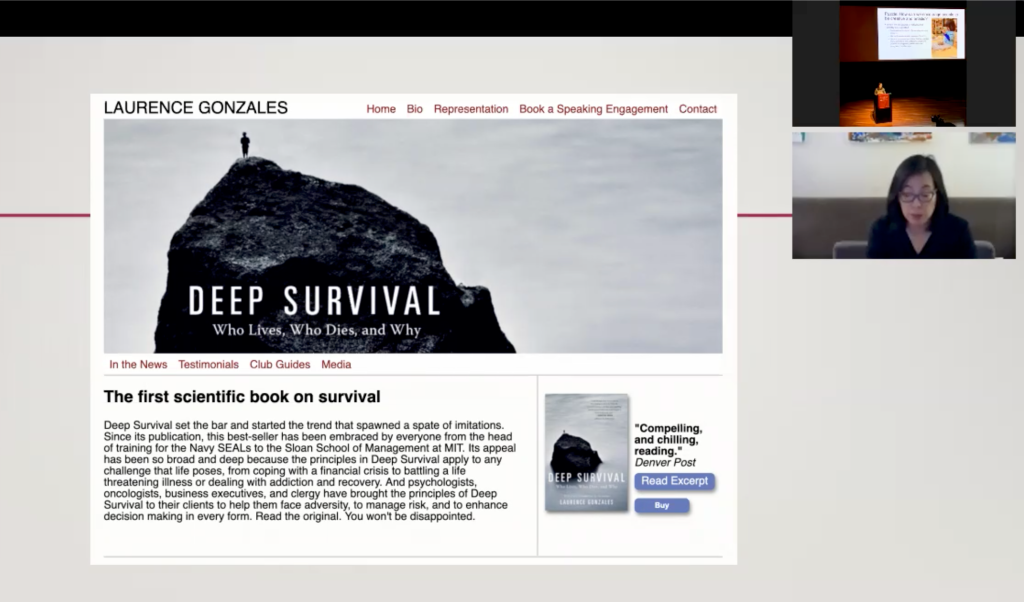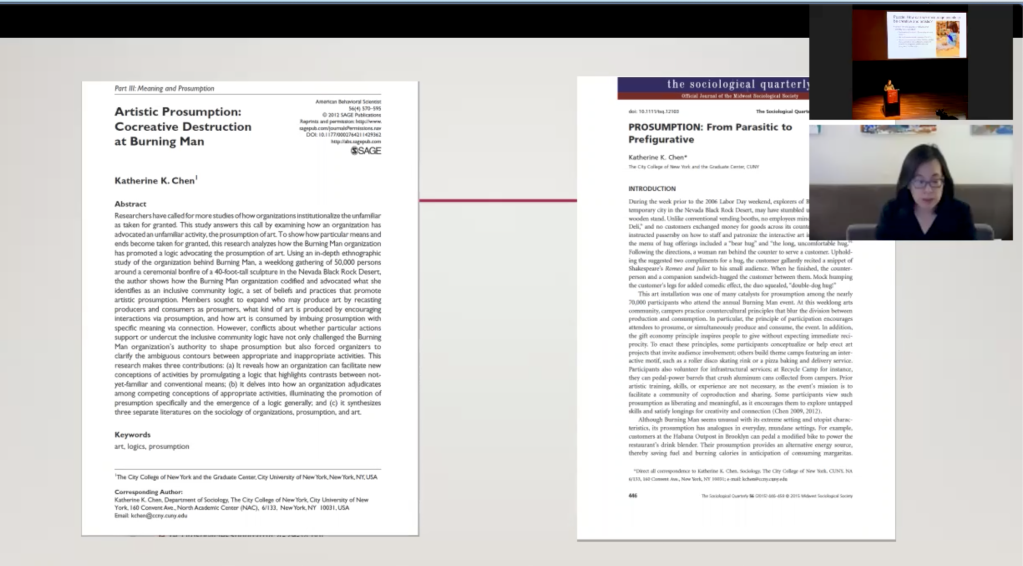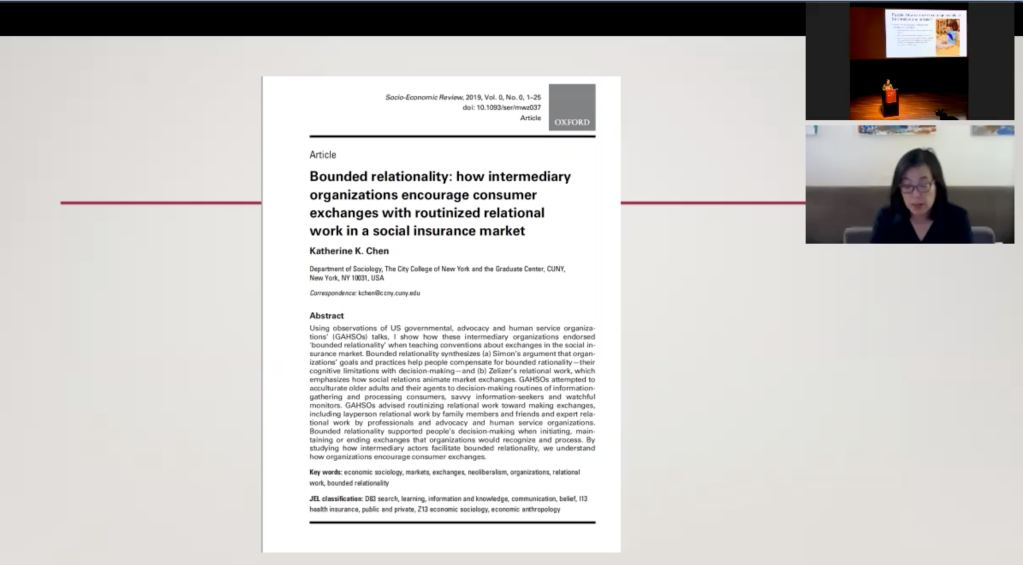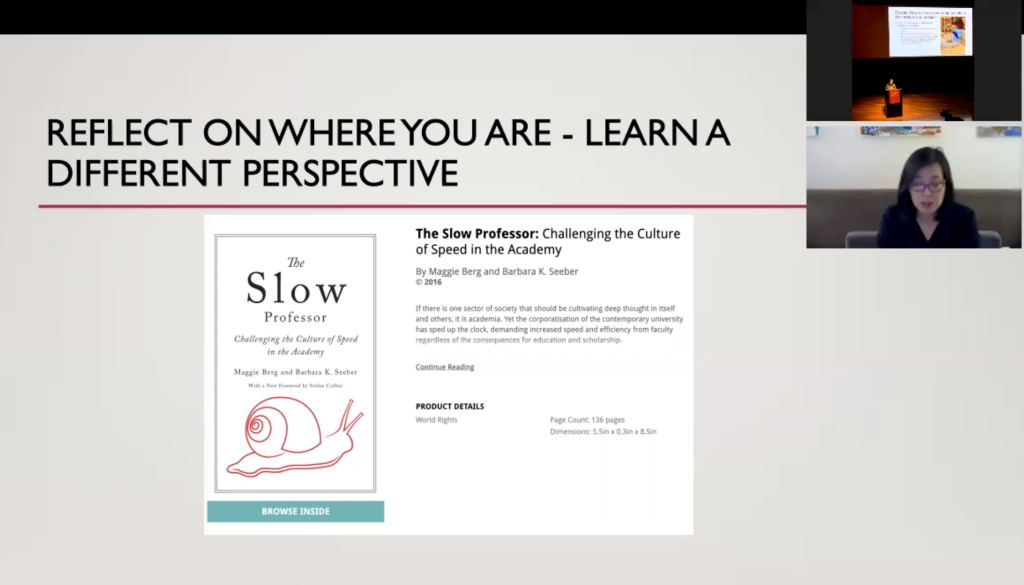thriving in the academic commons + labors of love in the time of pandemic
This year, like the past several years, I have the honor of serving as a mentor to tenure-track CUNY faculty in the CUNY Faculty Fellowship Publication Program (FFPP). The FFPP is a writing and professional development program that helps tenure-track faculty at CUNY two-year and four-year colleges navigate the ins-and-outs of publishing and tenure at their teaching and research-intensive universities. As a mentor, I get to read and comment on works in progress, across the disciplines, facilitate group learning processes, and connect with other highly accomplished mentors across CUNY; these responsibilities enact a cooperative philosophy of individual and collective learning-all-the-time.
Since this year’s FFPP orientation was virtual due to the pandemic, FFPP program directors Matt Brim and Kelly Josephs asked me to put together and record a presentation about publishing as a social scientist. I was also asked to comment on publication productivity for scholars who are caregiving during a time of pandemic, state repression/failures, and uncertainty.*
I’m sharing the direct FFPP link to my recorded presentation here in case it might help other scholars outside of CUNY.**
Since the video is not close captioned, I’ve cut and pasted the full script below. While I have embedded screenshots below, here’s my powerpoint presentation if you would like to look at the images of recommended resources, like guides for publication, up close:
“Greetings, I am Katherine K. Chen; I’m an organizational researcher and sociologist at The City College of New York and the Graduate Center, CUNY. I’ve been asked by FFPP to talk about the writing and publication process from the perspective of a social scientist. I’ve also been asked to discuss handling multiple roles in the academic commons during a time of pandemic, austerity, and state repression/failure.
When I was finishing my PhD thesis in graduate school, I came across a book called Deep Survival; in this book, journalist Laurence Gonzales distilled conditions that were common among the accounts of those who had survived disasters, plane crashes, and being lost in remote areas. I think many of these principles are applicable to the academic commons in both conventional times and uncertain times such as these.

I speak as someone who has experiences with journal publishing like the following:
(1) An editor sat on a revision that I submitted in response to a R&R, a revise and resubmit. The editor sat on the revised manuscript for 7 months [correction: it may actually have been 9 months…] before saying he was rejecting it, without sending it out for review. I told other folks I had met at a mini-conference about this dispiriting decision; well, they let a famous researcher who was putting together a special issue around his concept about my paper. That’s how I got introduced to a literature that catapulted my article into a higher ranked, well-known interdisciplinary journal. This scholar also invited me to dialogue with his work for another journal.

(2) I had a journal manuscript that I was absolutely in love with writing, about the difficulties that consumers have with navigating social insurance markets. In Aug. 2013, I sent the manuscript to a special issue for a general journal – this got rejected fairly quickly, with a few helpful review comments. I revised this and sent it to a regional journal in Oct. 2013. This also got rejected in Nov. 2013, with reviews that made it clear at least one reviewer didn’t understand the manuscript. I spent a lot of time revising the manuscript with a new framing, based on a new literature, and submitted to an interdisciplinary journal in July 2016. This version of the manuscript received a R&R; I did a revision. This was followed by another R&R that had the warning of a “high risk” R&R. I did one final push, as this was a make-it-or-break-it moment. For several years, I had spent all of my New Year Eves working on revisions to this paper, and I was hoping to break this yearly ritual, as much as I enjoyed working on the paper. Leading up to this final round, I was doing a reading group with a graduate student on an entirely different topic of school choice, and I also just happened to take the time to read a colleague’s book about the market of wealth management. These seemingly ancillary activities helped me hone my own theoretical concept of bounded relationality, generating a published journal article in highly ranked and regarded journal, more-so than the ones I had originally submitted to.

With these experiences in mind about how long it can take to publish research, I have translated several of the lessons from the Deep Survival book that I mentioned to our specific situations, which is about surviving and hopefully at some point thriving during a long journey towards publication and dissemination.
Here are how these ideas apply to thriving in the academic commons:
- Think relationally. For survivors, the thought of loved ones, real or imagined, was what kept them going on seemingly hopeless treks, even when they were tempted to give up. For academics, thinking relationally means the following: (a) First, who’s your audience? Who are you writing for, and why is it important? (b) Second, who’s in your corner? Who can you turn to for honest feedback? Who can be your cheerleader and supporter? Who can you offer the same in return? Can you form a writing group? Can you find a writing partner? These groups can really keep you going, even when you haven’t heard from reviewers and editors or the reviewer feedback is not what you expect.
- Prepare for your journey by anticipating possibilities. Survivors are prepared with maps and supplies. For academics, this means a lot of reading of examples in your field and how-to guides like: Wendy Belcher’s Writing Your Journal Article in 12 Weeks or William Germano’s From Dissertation to Book.
- Adapt to changing circumstances. In the Deep Survival book, people got into trouble when they acted the way that they thought things should be – that the descent down the mountain should be easy, that there wouldn’t be a storm rolling in. Survivors didn’t reject what they saw or experienced – they adjusted to their conditions. If they were tired, they slept. If they were cold, they didn’t keep wandering around until they got hypothermia; they made a shelter with a fire instead. For academics, this means: (a) If you get a rejection, mourn it for a moment, then keep moving and talking with colleagues, prospective journals, or book publishers. (b) If you keep getting the same advice about your writing, think about how you can use this advice to fix your writing. (c) If you find that your intended audience isn’t receptive to your work, is there a different audience that might welcome your work? Do you need to build up those audiences by organizing conferences or special events and making connections?
- Reflect on where you are by learning a different perspective – The Deep Survival book argues that hikers need to periodically turn around and observe where they were, from a different vantagepoint, so that if and when they need to make a return journey, they can recognize the landscape. This one is a harder one for academics – this is essentially an argument for slow scholarship, for revisiting ideas developed in younger years, to question assumptions and original interpretations, to master different literatures and see how these could fit. Since so many of us have spent years developing expertise in particular areas, it’s tempting to hunker down and take a very linear and narrow path. Adopting different perspectives, crossing subdisciplinary boundaries lines can be generative, help you fall in love again with what originally drew you to research.

Now, I’m going to turn to a slightly different but related topic. Besides working as a tenured faculty, I am also a caregiver for a younger learner – in my case, a 6-year-old daughter and her community of now online learners. What does this mean? I can’t speak as a tenure-track faculty writing during a pandemic; I can only extrapolate from what I am doing and what I worry that junior faculty are experiencing. Here’s my suggestions:
- First, Be kind to yourself.
- Second, Reach out to others for support. Most people and communities do want to be helpful when they can. If you’re not a caregiver yourself, think about how you can support and be inclusive to those who are – Victoria Law and China Martens’ book Don’t Leave Your Friends Behind is a good guide.
- Third, Partner up with others to write.
- Fourth, Use the classroom in synergistic ways – learn about topics and/or methods that you’re interested in and test ideas.
- Five, If you can, use your experience to inform your research and vice versa. I aligned my research interests with what I was experiencing as a parent, instructor, and mentor.
- Six, Take the longterm view – expend your energy interdependently where you think possible futures should head. Many scholars have sought to contribute to the academic commons, in the hope of bettering lives and circumstances for themselves and those around them, despite so many wrenching circumstances. Many of us are the descendants of those who escaped wars, famines, genocides, and slavery, for example, and many of us are here today precisely because of mutual aid and cooperation. Our daily presence and mentorship of upcoming generations are what makes multiple futures possible.

Thank you so much for listening. Take care, and welcome to the CUNY academic commons.”
For other inspiration about writing and publishing, check out other content on the FFPP visual orientation page (some content is embedded, for others, you’ll need to scroll down and click the screenshot images to go to a dropbox link):
- Bridgett Davis recounts her experience with how abandoning 400 pages of writing lead to two additional books, including a memoir that she is now converting into a screenplay for a film.
- William Carr shares how a professional newsletter article about teaching at CUNY lead to an invitation to write about active learning for a textbook, thereby disseminating practices to wider audiences.
- Duke University Press editor Ken Wissoker discusses about publishing dissertation work as books.
- A FFPP group discusses their experiences as “The Writing Group That Never Quit.”
*Incidentally, the pandemic has accelerated skill acquisition and a reliance upon invisible labor and personal resources under challenging conditions. For those of who are instructing virtually from home, we’ve had to learn how to become video content generators, video-makers, and video editors. Some of us must use equipment that we have purchased ourselves and “free” labor donated by others.
** For those of you trying to budget time (or considering asking someone to provide video content), this 8-minute-long video involved several hours of set-up work, including writing and practicing the presentation and fussing with zoom recording and screen sharing settings. I could only complete it because the construction drilling in my complex had finally ended for the day, and I had gotten unpaid technical support from my zoom-savvy 6-year-old assistant. Another uncompensated work assistant (spouse) had sourced, purchased, and set-up the camera and boom mic.